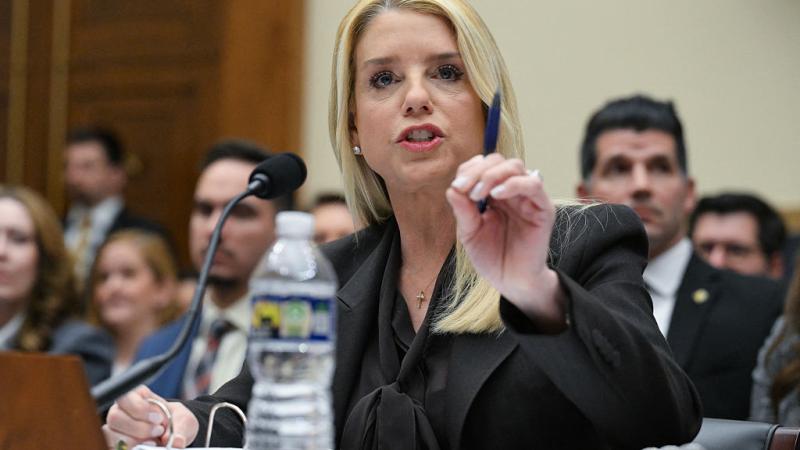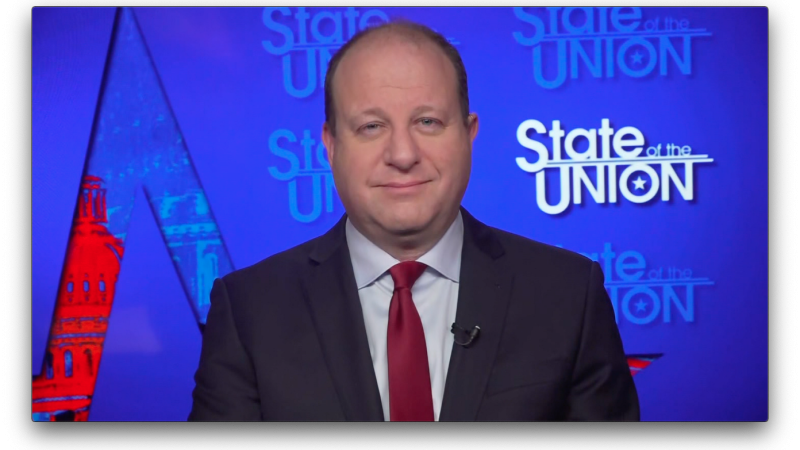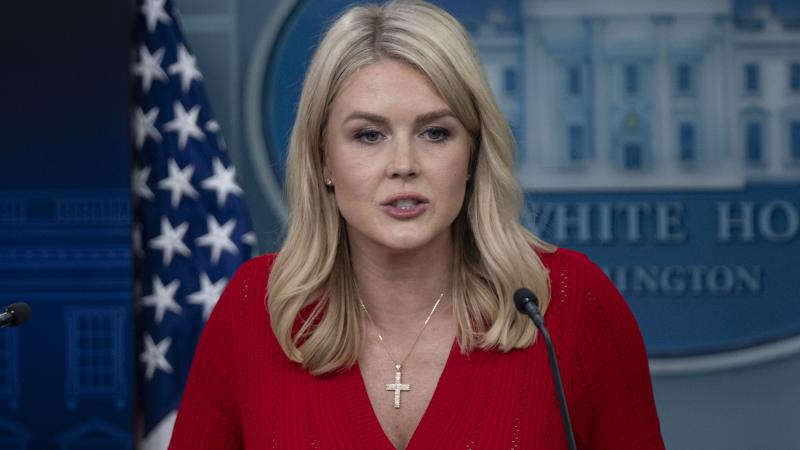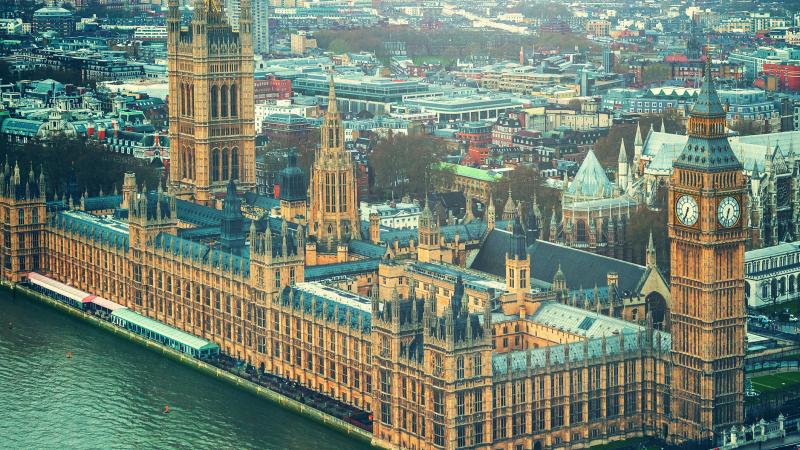Decade after Tea Party movement, conservatives still unable to meaningfully cut debt
“The US credit rating being downgraded is evidence of how our fiscal house is out of order,” Rep. Ralph Norman, R-S.C., a member of the House Committee on the Budget said Monday.
As President Donald Trump’s “big, beautiful bill” moves toward a final vote in the House, conservative budget hawks are livid that it largely fails to offer spending cuts to their satisfaction, marking the latest in a long line of punts for the House GOP that has repeatedly vowed to address the national debt.
Republicans have long campaigned on addressing the debt, with the Tea Party movement notching historic election wins under President Barack Obama. In 2010, Republicans won control of the House and reduced the Democratic majority in the Senate. Yet, even when Trump first took office, Congress did not pass a balanced budget.
Under President Joe Biden, House conservatives aggressively pushed then-Speaker Kevin McCarthy to agree to budget concessions when challenging his leadership. His attempts failed to satisfy debt hawks and McCarthy lost his post in October 2023. His replacement, Speaker Mike Johnson, R-La., reportedly frustrated fiscal conservatives, perhaps even more so than his predecessor.
The mega-bill
Johnson repeatedly passed continuing resolutions to maintain spending at Biden-era levels, despite promising to separately pass all 12 appropriations bills to fund the government through the traditional process. His tenure has seen firebrands, such as Reps. Marjorie Taylor Greene, R-Ga.; Thomas Massie, R-Ky.; and Chip Roy, R-Texas, all publicly lament the unwillingness of Congress to address spending and other campaign promises. The three voted "present" in a late Sunday night session, allowing the bill to go forward, with Roy revealing there was progress on moving up the start date for new Medicaid work requirements and speeding up the phaseout of green energy incentives.
The current House plan of passing a mega-bill to address all of Trump’s key priorities is still drawing fire from the same livid budget hawks. Several of them delayed the bill's advancement through key committees, although a floor vote is now in the offing. “The US credit rating being downgraded is evidence of how our fiscal house is out of order,” Rep. Ralph Norman, R-S.C., said Monday.
The Trump administration has pinned most of its legislative hopes on passing a single piece of legislation through the House and Senate and using the budget reconciliation process to include many of his tax and border security promises. Trump has repeatedly hinted at passing a balanced budget during his second term, though the mega-bill appears nowhere close to accomplishing that goal.
The mega-bill, named the One Big Beautiful Bill Act, calls for cutting at least $1.5 trillion in spending over ten years, down considerably from the original $2 trillion target in one year necessary to balance the budget. Trump’s Department of Government Efficiency (DOGE) had promised to find $2 trillion in cuts, but has ultimately found a mere $170 billion. In FY2024, the federal government spent $6.75 trillion, compared to the $4.92 trillion it collected in revenue, leading to a $1.83 trillion deficit.
Trump, for his part, has long insisted that his tariffs would ultimately provide the revenue necessary to account for the shortfall and potentially allow for eliminating the income tax, but thus far, revenues are nowhere near the levels necessary for such a plan to move forward.
Approval by section but some shouting included
The mega-bill has essentially taken the place of the 12 separate appropriations bills, with the committees responsible for drafting the traditional legislation instead marking up their respective sections and advancing them to the floor as portions of the same bill.
Whereas some panels have approved their portions of the legislation with minimal incident, others have witnessed a tumult during the markup process or even needed more than one vote to move forward. The Ways and Means Committee on Wednesday passed the tax portion in a 26-19 party-line vote.
The Energy and Commerce Committee held the markup for its portion of the bill last week in a tumultuous meeting that saw Democrats vehemently insist that planned work requirements for Medicaid recipients would boot the disabled from the program. Republicans denied those allegations and pointed to the legislation’s text. The Medicaid provisions were not set to take effect immediately.
During the meeting, House Democrats, notably Rep. Nanette Barragán, D-Calif., displayed graphics of disabled persons they claimed would lose medical coverage under the proposed changes, as well as images highlighting the rates of Medicaid reliance in the districts the Republican members of the committee represented. Disabled persons also protested the hearing.
A litany of hard-to-keep promises
Trump made a wide array of campaign promises related to taxes before returning to office, including an end to taxation on Social Security income and tips.
He has also vowed to renew the 2017 tax cuts. Analysts say such promises would necessarily limit federal revenue and contribute to existing deficits, putting House lawmakers in a bind as they seek to position themselves as proponents of fiscal responsibility. When seeking to balance the budget, lower revenues logically lead to deeper spending cuts, and potentially greater political backlash.
While the House has attempted to follow through on many of those pledges, the realities of the federal financial situation have forced lawmakers to embrace a more limited approach by sunsetting the tips and overtime cuts in 2028.
One of the primary issues for Republicans is state and local tax (SALT) deductions, which the 2017 Tax Cuts and Jobs Act capped. Moderate Republicans, especially those in the New York delegation, have attempted to end or otherwise raise the cap, which has long been a sore spot for voters in high-tax, Democrat-led states.
Trump himself promised to eliminate the SALT cap entirely while campaigning, saying that “jobs and factories will pour back into New York” should the House do so. His own 2017 tax act capped SALT deductions at $10,000.
Earlier this month, a proposed $30,000 SALT cap saw the Empire State's GOP lawmakers, including Reps. Mike Lawler, Elise Stefanik, Nick LaLota and Andrew Garbarino, balk at the figure, calling it “insulting.”
The SALT issue proved a pivotal divide during an evening vote last Thursday of the House Budget Committee that saw five conservative hardliners vote with Democrats to prevent its advance. But the Budget Committee reversed course on Sunday evening and approved the bill after Johnson met with some of the holdouts and conceded to “minor modifications.”
Getting to "yes"
Chip Roy, one of the budget committee members who opposed the measure on the first vote, voted present on the Sunday bill, “out of respect for the Republican Conference and the President to move the bill forward.” He did not specify what changes caused him to permit the bill’s advancement, but contended that the legislation remained unfinished and could be improved.
“But, the bill does not yet meet the moment – leaving almost half of the green new scam subsidies continuing,” Roy posted after the House advanced the bill on Sunday evening.
“More," he continued, "it fails to end the Medicaid money-laundering scam and perverse funding structure that provides seven times more federal dollars for each dollar of state spending for the able-bodied relative to the vulnerable. This all ultimately increases the likelihood of continuing deficits and non-Obamacare-expansion states like Texas expanding in the future. We can and must do better before we pass the final product.”
Norman, for his part, was somewhat optimistic that the bill could be improved during the reconciliation process, saying, “[t]here are several bites at the apple, but more to be done. We have worked tirelessly to ensure President Trump's America First agenda is maximized in this bill.”
The Facts Inside Our Reporter's Notebook
Links
- take control of the House
- frustrated fiscal conservatives
- Marjorie Taylor Greene
- Thomas Massie
- Ralph Norman
- $1.5 trillion
- $170 billion
- $6.75 trillion
- $4.92 trillion
- provide the revenue
- passed the tax portion
- boot the disabled
- highlighting the rates
- protested the hearing
- renew the 2017 tax cuts
- attempted to follow through
- sunsetting the tips and overtime cuts
- 2017 Tax Cuts and Jobs Act
- promised to eliminate the SALT cap
- proposed $30,000 SALT cap
- vote with Democrats
- Budget Committee
- Roy posted














